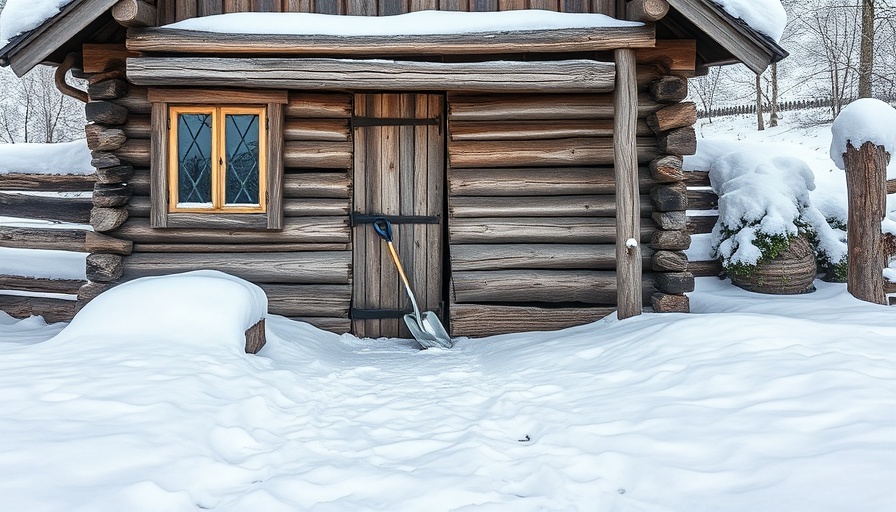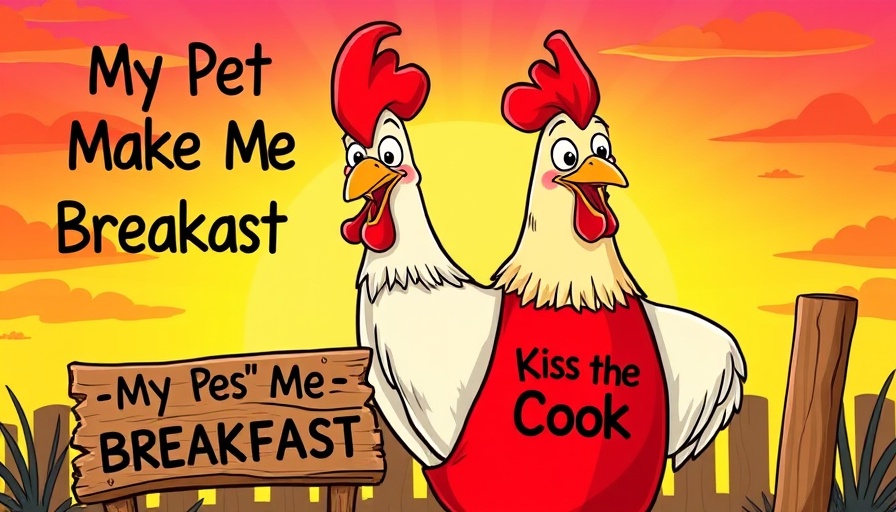
Prioritizing Farm Safety in Winter Conditions
As winter progresses, the buildup of ice on farm properties can lead to dangerous conditions for both farmers and livestock. The natural cycle of thawing during the day and freezing at night creates slippery surfaces around barn entrances and walking paths, posing a serious risk of slips and falls. This issue necessitates the exploration of safe and effective ice melt alternatives that prioritize the welfare of both humans and animals.
Understanding the Ice Problem
Around late winter, the intricacies of weather create an environment ripe for ice formation. Each footstep or vehicle tire leads to a compacting of snow, which eventually becomes a solid sheet of ice, making normal traversal hazardous. Addressing this problem requires proactivity; clearing fresh snow promptly reduces the chances of it turning into ice—an approach that can significantly mitigate winter hazards.
Simple Ice Melt Alternatives for Farm Safety
Among the alternatives available, one of the most practical is sand. While it may not melt ice in the traditional sense, sand enhances traction and promotes melting during warmer spells, effectively preventing slips while remaining gentle on both the environment and farm infrastructure. Its ease of accessibility and cost-effectiveness make it an ideal choice for farmers looking to balance safety and sustainability.
Additional Tools for Winter Maintenance
Besides alternatives like sand, farmers should equip themselves with effective hand tools to support their ice removal efforts. Essential tools include:
- Rounded shovels for deeper digging into packed-down snow.
- Spades for scraping stubborn layers of ice.
- Dedicated ice scrapers designed for flat surfaces.
- Snow shovels which enable quick removal of fresh snowfall.
Utilizing these tools in conjunction with safe ice melt solutions not only enhances winter safety but also contributes to the overall efficiency of farm operations.
Emphasizing Natural Alternatives
In addition to sand, several eco-friendly alternatives exist, such as coffee grounds, which not only assist in melting ice but also provide grip and warmth due to their dark color. Sugar beet juice is another effective option, manipulating the melting point of ice and snow, though it may be more costly. Ultimately, when seeking solutions, it is crucial to prioritize those that protect pets, wildlife, and the surrounding ecosystem.
The Impact of Utilizing Safer Alternatives
The use of environmentally friendly ice melt options significantly reduces the risks associated with traditional salts that can damage concrete, harm vegetation, and pose health threats to animals. By selecting approaches that align with farm sustainability, farmers contribute positively to their operational landscapes and foster a healthier environment.
As winter progresses, maintaining clear and safe pathways is paramount to preventing injury on farms. Considering the discussed ice melt alternatives not only safeguards farm people and animals but also showcases a commitment to sustainable farming practices. Make informed decisions this winter by opting for solutions that champion both safety and ecological integrity.
 Add Row
Add Row  Add
Add 




Write A Comment